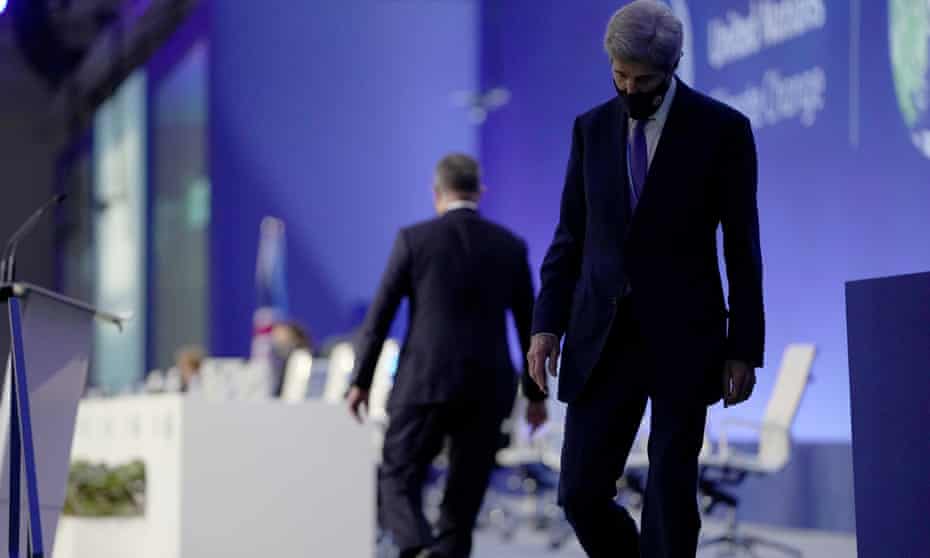It could have been worse, but our leaders failed us at Cop26. That’s the truth of it.
Countries who take this crisis seriously must seize the initiative, and make the rest pariahs

Where now? Governments have agreed a weak climate deal which gets us a smidgen closer to holding temperatures to a rise of 1.5C. But as regards all the most important pledges to phase out coal, reduce subsidies and protect forests, Glasgow failed.
The fossil fuel lobby, led by India, held its line, dramatically succeeding in watering down – at the last minute and without due, transparent process – the move to ‘phase out’ coal power, pledging instead to ‘phase down’. The poor came away with next to nothing, there was little urgency and we are still heading for catastrophe. Any chance of halving fast-rising emissions by 2030 – the declared aim of the talks – is now negligible.
The UN climate process must be reformed to become more nimble. It is slow and measured and requires consensus and compromise. This is usually admirable, but it works against the scale and speed of action needed in a global emergency like this when millions of lives are at stake and every year of inaction counts.
Soon we may have to accept that even when faced with flood, fire and famine, some countries will never act in the wider interest and will hinder the progress of others.
So, short of locking leaders in a room and not letting them out until they have agreed something better, the only way 1.5C can be achieved must now be for those countries who want progress to work outside the UN process. That China and the US will meet next week is possibly the most positive development of the meeting.
Leaders may not agree, but they can force the changes they could not make in Glasgow. Because most climate actions devolve to lower tiers of government, mayors, local authorities, counties and states can be enabled to slash transport and building emissions and help households.
Most are well able and willing to take the initiatives that prime ministers and presidents resist. Glasgow will have helped give them the confidence and legitimacy to propose new ideas, and to act together. All it needs is backing and money.
Equally, governments can take the gloves off, treat the few countries who are preventing climate action as criminals and reward those who do with trade deals, contracts, investments and aid.
Other strands of possible future action became apparent in the Glasgow halls. One was for an emergency Marshall-style “plan for the planet” to catapult ambitious countries into a sustainable future.
If trillions of dollars can be found to sort out the banking crisis or the Covid pandemic in a few weeks, then it can surely be found to help countries transition into a low carbon world, starting with the $100bn (GBP75bn) a year that rich countries offered the climate vulnerable in 2009.
The shameful refusal of the rich to keep their promise to the world’s poor poisoned climate negotiations for a decade and may go down in history as one of the biggest diplomatic blunders of the age.
Besides, it is pointed out, there is no shortage of money for action. There are now more than 2,700 billionaires, 600 more than one year ago. They, too, can be cajoled, bullied and taxed to make them act in everyone’s interests and commit to restore damaged nature.
And finally, the World Health Organization must declare an immediate health emergency, making the link between the pandemic and the climate crisis, and explaining to politicians that climate change really is a life or death issue and will soon become the greatest challenge to human health that the world has ever known.
World leaders failed us again in Glasgow, but the summit showed that countries with the vision to act in the interests of all will shape the future and benefit the most.
